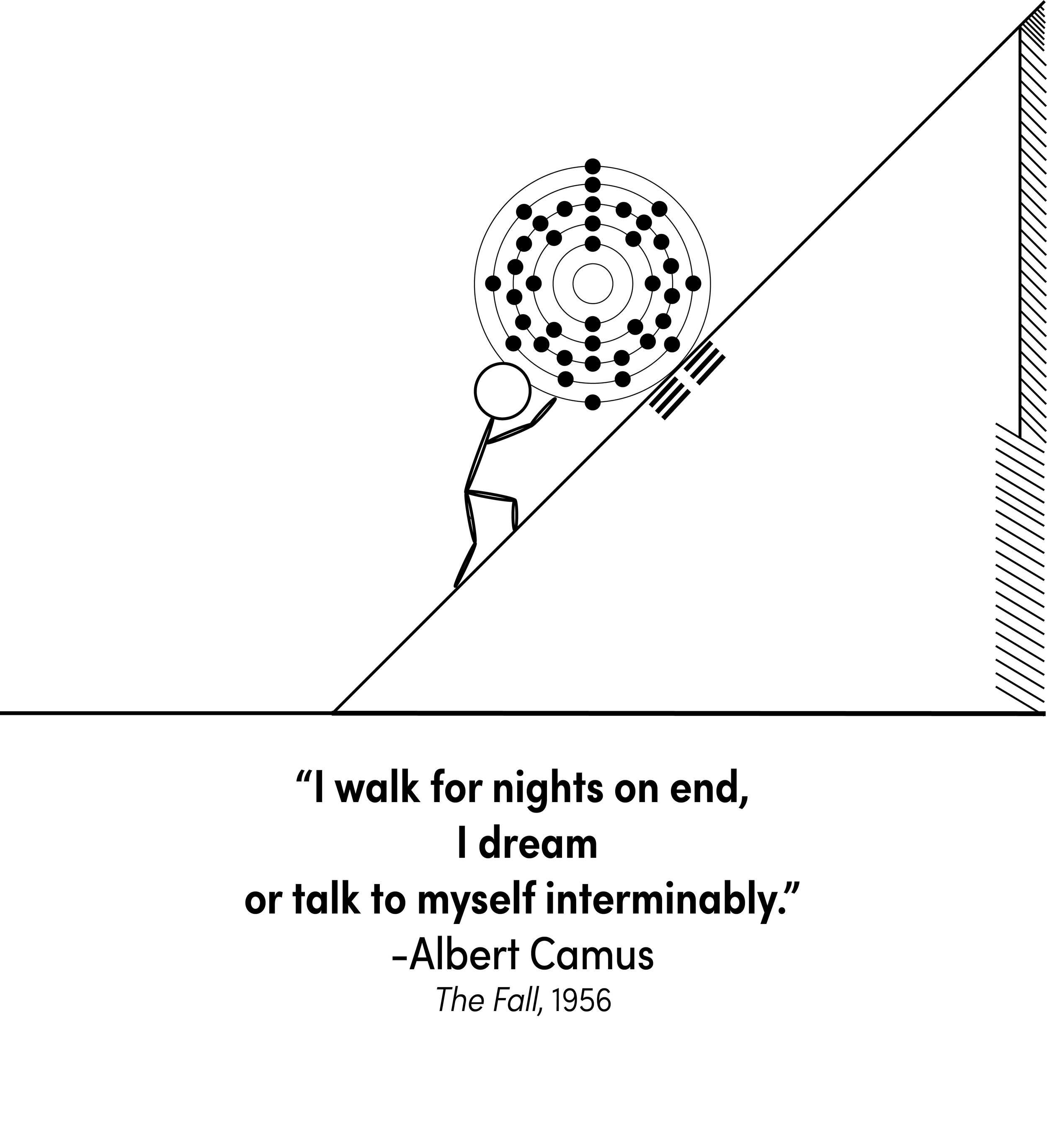Spectacular Halt
About 431 years ago on this day, February 8, Mary Queen of Scots was beheaded for allegedly plotting an assassination against Queen Elizabeth I https://en.wikipedia.org/wiki/Mary,_Queen_of_Scots. Mary denied the charges, and maintained her innocence until the end. The execution must have been a gruesome if not mildly comical scene (involving a surprise wig — not a merkin) as accounted in the sources and available in summary on the Wikipedia page. Also, if the Wikipedia daily events page is to be believed, it was also the first day a U.S. State used the gas chamber in 1924 in Nevada. Thus, a good day to talk about executions, if there is such a thing.
Mary Queen of Scots was most certainly not an Absurdist, but she did go stoically to her death, and had more than a few words to say about it. Some of her attitudes are later (unrelatedly) captured in Camus’ writings in Reflections on the Guillotine (which are summarized well here if unfamiliar: https://en.wikipedia.org/wiki/Reflections_on_the_Guillotine). I’m going to just look at a portion of the essay for now, the part where he discusses some of the religious aspects, and society.
Camus states that “…the supreme punishment has always been, throughout the ages, a religious penalty. Inflicted in the name of the king, God’s representative on earth or by priests or in the name of society considered as a sacred body, it denies, not human solidarity, but the guilty man’s membership in the divine community, the only thing that can give him life.” -p.222, Justin O’Brien transl. And then goes on to discuss how the church justifies this action, in particular the Catholic Church, as a means of “saving souls” in the life hereafter. Mary’s act of dressing in martyr’s colors at her execution, and her comments that true justice would happen in the afterlife when God sorts everything out, lends a little credence to this idea.
Camus takes both the believers and unbelievers to task on this approach, how can a “true” believing Christian justify this act, or an unbeliever accept their justification for legal murder. Camus simply explains the reasoning as he sees it, that the belief in the immortal soul allows for different viewpoints on death and execution. However, now in the religious political void created by secularism, can one truly justify capital punishment on any of these means? “When an atheistic or skeptical or agnostic judge inflicts the penalty on an unbelieving criminal, he is pronouncing a definitive punishment that cannot be reconsidered. He takes his place on the throne of God, without having the same powers and even without believing in God.” -p.225, O’Brien.
This attitude should be troubling for anyone that encounters it. Can society hand the power of life and death to a judge or jury in a secular state? Can a religious community accept they’ve given godlike powers to someone who might not be worthy, and who is acting as a god? Given how most monotheistic religions think about encroaching on god’s turf, I think it should make the religious community supporting execution at least think.
Camus then points out how “society” at least in his time, and maybe especially after the World Wars, has, “…has indeed lost all contact with the sacred.” and not through the enlightenment and modernity, has set “society” itself on a pedestal. The Gods of Democracy maybe? Camus says that, “The doctrines of evolution and the notions of selection that accompany them have made the future of society the final end.” -p.226, This final end can justify a lot of means in this scenario, anything standing in the way of progress can be rationalized if one tries hard enough. But with states now having just freshly committed the horrors of the World Wars, how can we accept their rationale for anything given that they’ve killed more than and one person ever could? Well, Camus thinks we can’t and that we shouldn’t. “Hence our society must now defend herself not so much against the individual as against the State.” -p.227.
This rallying cry for the individual is what speaks to me here about the Absurd man. Certainly no one is a special snowflake in that they deserve more than others, and really the Sisyphean story is one of eternal punishment, but it’s an individual punishment. A punishment Sisyphus earned through living a full life and snubbing the gods and political structures of his time. I admit I can get a little uncomfortable with overly politically correct (PC) speak and attitudes, I’m not sure why, the libertarianism in me wants the individual rights protected most of all, and these often fall under PC umbrellas. I also sometimes get annoyed at smugness of those that are. But I think this isn’t necessarily freedom or enabling freedom of others.
Is it a new form of oppression that has yet to be appropriately defined? Because even taking on PC speak can result in denouncements. These denouncements, while not ending in death like Camus points out of earlier times, are still quite terrible for individuals and society. Camus asks the question, “How can European society of the mid-century survive unless it decides to defend individuals by every means against the State’s oppression?” -p.228. Maybe include society, or “online communities” in that as well as State? I know that evidence points to the fact that we are living in a time when there is less violence than at any other time, even if it doesn’t fell like it (at least if you believe Steven Pinker) but what new creative forms of oppression are emerging? Broad censorship? The penetrant security state? Online denouncements of mistakes or other public shamings? I’ll end with one final from Camus, “Hence we must call a spectacular halt and proclaim, in our principles and institutions, that the individual is above the State.” -p.229.
-DA



